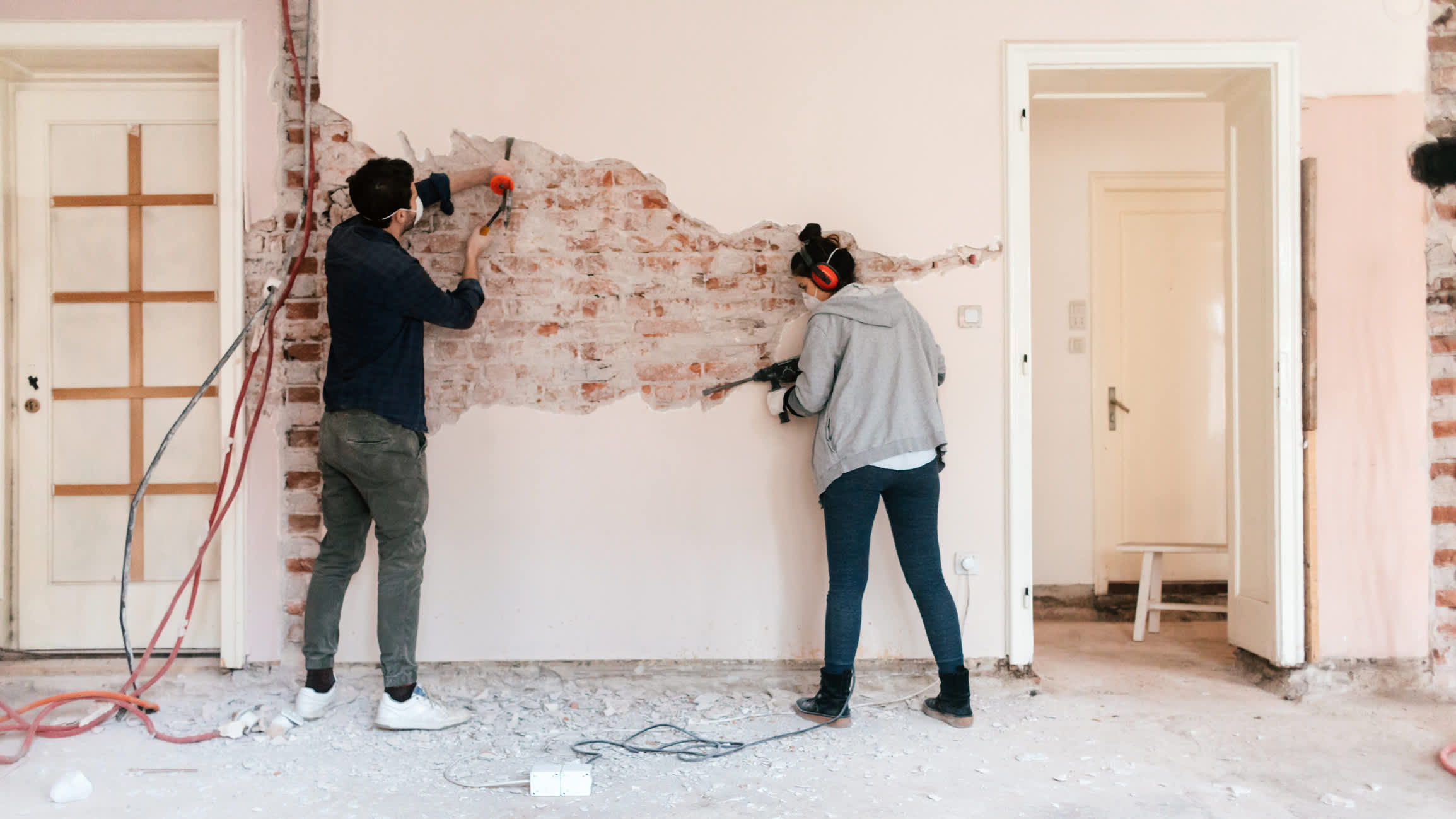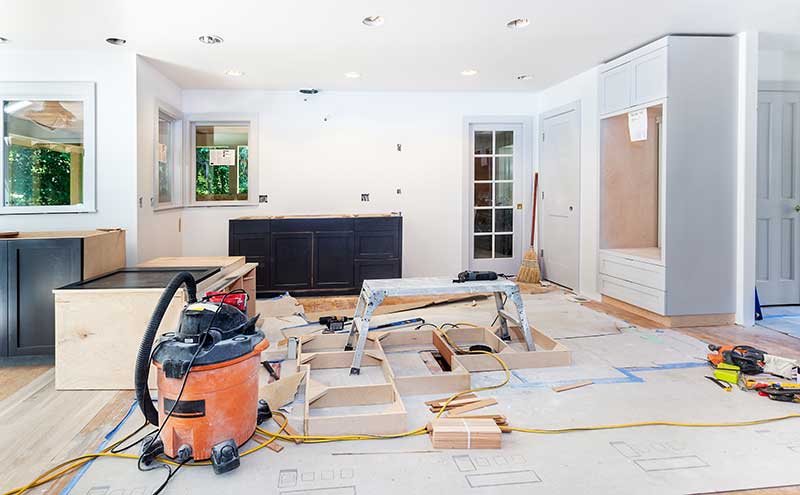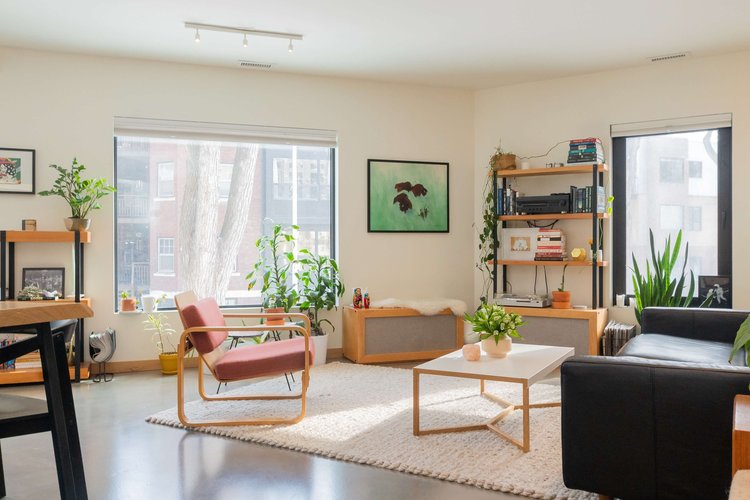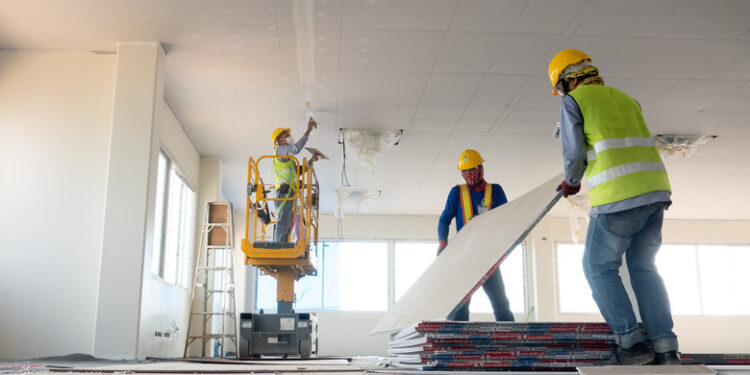Chaos During Home Renovation Projects
When a home is under renovation, it can feel like a disaster zone. With rooms blocked off, tools and materials everywhere and contractors coming and going all day long, your house can quickly become a messy, noisy and stressful mess.
Here are some Feng Shui tips to help keep the project running smoothly and your family happy!

1. Get Organized Early
:max_bytes(150000):strip_icc()/neatly-organized-command-center-29057373498141f5999c6bb56d334d5e.jpg)
Whether you’re using a notepad, app or digital calendar, a system of tracking dates and milestones will keep you on track throughout the renovation process. Having a visual will help you anticipate and manage tasks like buying supplies, cleaning your home and packing away items that are not needed during the project.
Keeping all of your personal belongings out of the way will minimize dust exposure and potential damage. Store picture frames, books and other valuables in a designated storage space during invasive phases of the renovation or consider renting a portable unit.
Croka says that “for larger projects, staying elsewhere through invasive construction phases is a good option for your mental health.” This may not be possible for everyone due to budgets and logistics but, if you can afford it, the peace of mind will make it worth it.
2. Plan a Renovation-Free Zone

During a renovation, your home can feel like a construction zone. Blocked-off rooms, tools scattered throughout the house, and pros coming and going can create a stressful atmosphere for everyone in the family.
Before you start any home renovation projects, determine the goals and priorities for your project. Talk to friends and family about their experiences with remodeling to get valuable tips and advice.
Once you know what projects you want to focus on, create a budget. This should include the cost of materials, labor, permits, and decorative touches. To prevent overspending, consider padding your budget with a 10% buffer. This will help you avoid any unexpected costs during your remodel.
3. Set Ground Rules for Crew Access
Having workers swarming your house can feel invasive. It’s a good idea to work out a schedule with your contractor upfront, so you can know which rooms are off-limits, when they will start and finish, and what times you should expect them.
This schedule can change due to unforeseen issues, so your superintendent should meet with you on a daily basis to discuss plans. Your superintendent should also be able to answer any questions you may have.
Children have a way of turning anything into play equipment, so make sure to set up at least one room that’s safe for them. This will provide a space away from the noise and dust that can distract them from their schoolwork, chores, and family time. Also, if possible, consider renting an apartment or staying with friends and family during the invasive construction phases.
4. Take Breaks
Extensive renovations often span months. Make sure you explore different timeframes and work with your contractor to find a timeline that will least disrupt your daily routine. Be sure to communicate clearly with one another about your personal and professional schedules to prevent misunderstandings or feelings of resentment during the process.
It may seem counterintuitive to experience home renovation burnout when the end result will be a new space that’s more enjoyable and functional, but the reality is that you can still feel stripped of power while strangers are tearing down walls or hammering new floor panels in place. Take purposeful breaks throughout the project that allow you to refocus your energy away from the construction site. This could be as simple as taking a walk outside or engaging in sensory self-care (like massaging essential oils). Creating clear boundaries for yourself will help you avoid feeling like the project is never-ending.
5. Keep It Clean

A lot of dust and debris will make its way to your drawers, cabinets, and other small nooks during renovations. That’s why it’s important to clean your home regularly, if possible.
If you can’t remove items that are in the way of the crew, like furniture or children’s toys, consider covering them up with plastic sheeting. This will ensure that your items stay clean and prevent them from getting covered in splattered paint or drywall dust.
Also, make sure to seal up closet doors and apply masking tape to any gaps in your walls or cabinetry to limit the amount of dust that escapes the renovation zone. This will save you a lot of time cleaning up afterward! Also, try to vacuum with a HEPA (high efficiency particulate air) vacuum at the end of each day.











































